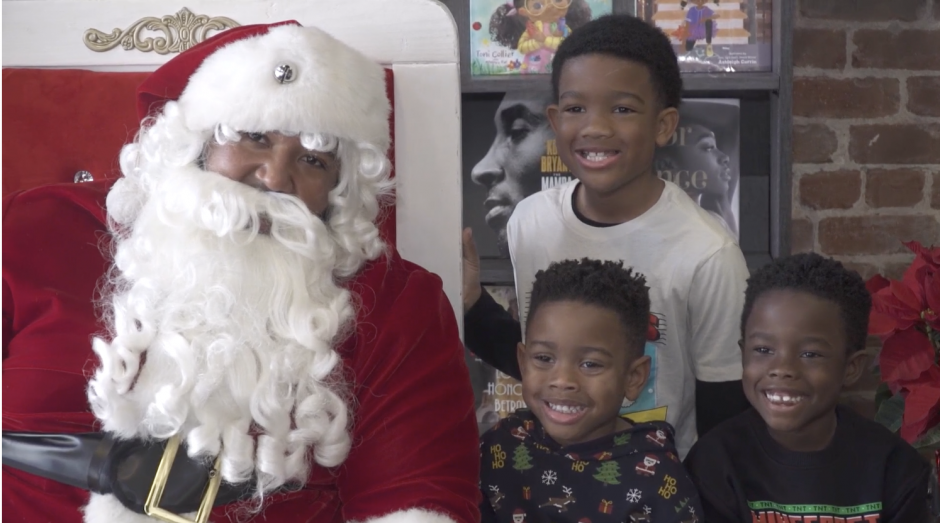Santas Just Like Me
The importance of Black Santa during the holidays
December 11, 2023
According to a survey by the nonprofit, National Santa, white people make up 75% of Santas, while Black people account for less than 1%.
Author: Kandace Redd
Published: 5:44 PM PST December 11, 2023
Updated: 9:22 PM PST December 11, 2023
SACRAMENTO COUNTY, Calif. — For many families, standing in long lines, sometimes for hours or in the cold, just to get a Christmas photo with Santa Claus is a holiday tradition. When the special moment comes, some children give their biggest smile, while others stare at Santa in amazement.
Tristan Johnson is from Del Paso Heights, and he’s giving the gift of representation this holiday season. As Black Santa, he met dozens of children during the Christmas in Oak Park event Saturday at Underground Books. St. Hope presented the free event to help celebrate African American culture in the community.
“For Christmas, I want to bring joy to my community,” said Johnson. “The representation of a Black Santa in the community is amazing. It encourages all of us to share and love each other.”
Janel Schoby is a mother in the Greater Sacramento region, and she attended the event with her family. She said her three young sons enjoyed seeing Black Santa and snapping photos at the event.
“I feel like in the world that we live in, it’s very few opportunities for my children to see people that look like them,” Schoby said. “People that are important and celebrated, so to see Black Santa, it is just another thing that makes them feel welcomed and that they belong here and they can relate.”
According to a survey by the nonprofit, National Santa, white people represent Santa the most in the U.S. It shows white people make up 75% of Santas, while Black people account for less than 1%
Stafford Braxton is the founder of Santas Just Like Me in North Carolina. He said he started the company in 2013 to provide representation of Santas of color across the country.
“It’s important for the African American community to see themselves represented during the Christmas season, and for so long, that has not been the case,” Braxton said. “Every season, we encounter parents that are just so grateful. We have parents that drive hours just to come see one of our Santas during the Christmas season. It’s just an overwhelming feeling of joy, goodwill and fulfilling a calling and a need.”
Even though Black Santa brings joy to many families and their communities, there are some challenges. Braxton explained how he’s experienced racist messages and hateful encounters firsthand.
“I have been called the N-word more times in the last 11 years than my 51 years of growing up in the south,” he said. “We’ve had people that would stand in line for 20 minutes, because they could not see that it was a Black Santa, and when they got around the corner and they saw that it was a Black Santa, they would take their kids out of the line.”
Despite hate, Santas Just Like Me continues to provide visits at malls, schools, homes and even virtually. Braxton also started a nonprofit organization called Santas Just Like Me Too. The goal is to help provide free services for low income families and those who cannot afford photos or visits with Santa.
“The thing that keeps me going is that there are families that have been coming to us, year after year after year,” Braxton said. “Santa can be whatever Santa needs to be to whomever he needs to be it.”
Johnson agrees, saying Santa can represent all communities. He goes on to explain how representation can help children with self-esteem, self-love, and care for others, too.
“It gives them confidence that there’s going to be a beautiful future for people that look just like them and it inspires them to grow and to be great,” Johnson said. “We should give the children an opportunity to have an imagination and have joy in their life.”
We want to hear from you!
The Race and Culture team’s mission is to serve our diverse communities through authentic representation, community engagement and equitable reporting. Accomplishing our goals of inclusive reporting requires hearing from you. Is there a person or place that you want us to highlight? Email us at raceandculture@abc10.com or fill out the form below.

